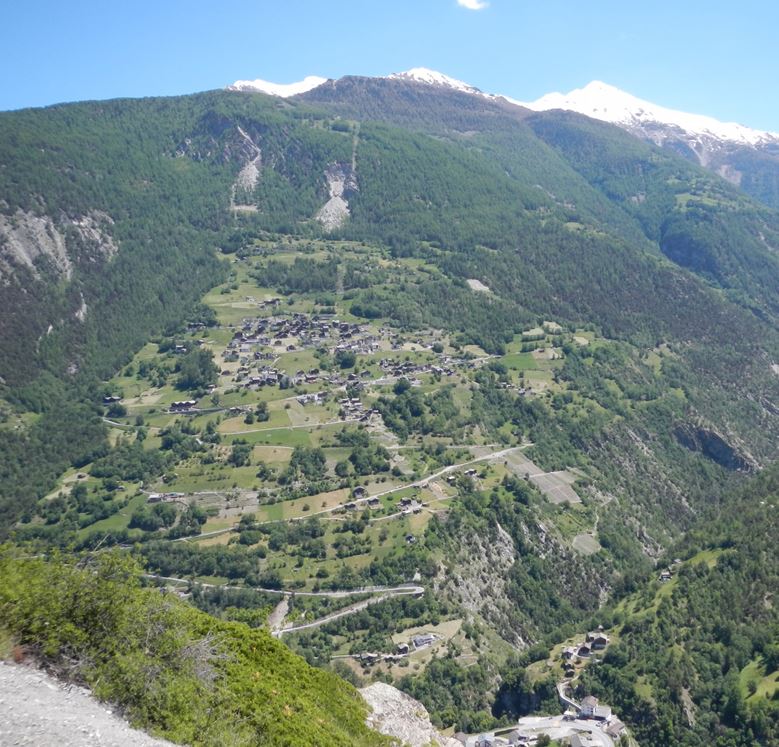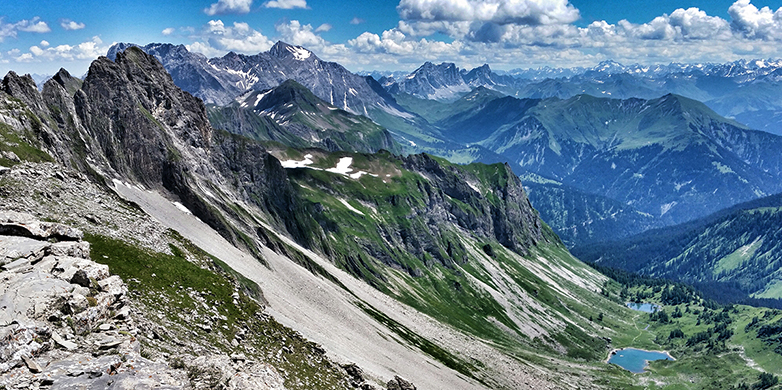Improving resilience through diverse land stewards
Biodiversity has been shown to increase the resilience of ecosystems to global change. But what fosters the resilience of socio-ecological systems? We have shown that in order to build and maintain resilient mountain landscapes, we need not only a diversity of species, but a diversity of land stewards.
Half of the global population depends on mountain regions and the services they provide. Expressions involving mountains and their services are more popular than ever: “the water tower of Europe”, “the storeroom of biodiversity” or “the new Disneyland of urban dwellers” are only a few headlines trying to describe the Swiss Alps and the critical ecosystem services they provide. Although mountains radiate an image of strength, monumental size and long-term existence, they are in fact some of the most fragile landscapes, shaped by intensive interactions between humans and nature: so-called “socio-ecological systems“.
Increasing rates and magnitudes of globalization and climate change are, however, influencing the way such systems function. It seems that this course of “development” is unchangeable – bad news for all the people depending on these socio-ecological systems! But instead of staring into the headlights of disasters and simply studying the effects of global change in ever-increasing detail, we thought we would turn the question around: What can be done to make mountain landscapes more robust to inevitable global change?
Eight years of interdisciplinary collaboration
The MOUNTLAND research project [1] aimed to devise policy and management strategies to secure the provision of mountain ecosystem services in a time of global change. We focused on three Swiss mountain areas in the Waadtländer Jura, Valais and Graubünden. In the search for answers, we first needed to understand the underlying mechanisms of these highly complex socio-ecological systems. We had to accept the fact that a highly simplified model wouldn’t do. We thus expanded our coupled ecological and socio-economic agent-based models by involving the local community and various stakeholders [2]. This iterative long-term process led us to uncover policy strategies: For example, early spatial planning actions in combination with more targeted direct payments are urgently needed in the Alps to support the current regional structure and traditional mountain farming practices. [3]
The analogy between ecological and socio-ecological systems
With this integrative modeling toolbox in hand, we were able to study how socio-ecological systems react to change under various scenarios and how often these systems share long-known fundamental principles of ecosystems. [4] This may sound like common sense, but it is nonetheless a crucial insight – the resilience of mountains depends on high levels of both biological and social diversity. This means that it does not help to just keep farmers in mountain regions to take care of the landscape. It is a typical “more of something good is not always better” effect – analogous to principles in biology, where what counts is not only the number of animals of one species, but the number of species overall. A wide variety of species leads to a wider range of responses to environmental fluctuations over time, thus rendering the entire community more stable. To make mountain regions more resilient to global change, we need to have highly diverse land management strategies provided by various stewards, from part-time sheep farmers to full-time cow farmers.
Turning research into action

Such findings can be quite meaningless if they are not shaped into a form where they can be put into action. Scientific papers will not contribute much to diversifying landscape management. So we designed a web-platform in collaboration with many potential stakeholders – a communication and interaction toolbox called Landscapeization [5]. This platform helps users to understand the effects of various policy instruments on ecosystem services: subsidies or various spatial planning instruments. We applied it in workshops to transform the knowledge into action: “[The platform] makes it easier to think outside the box in a way that I now consider nature in my thoughts,” said one of the workshop participants. This was the first implementation step of a fitness program for our mountain landscapes – making them more resilient to global change.
Further information
[1] The MOUNTLAND research project and the external page Operas project
Adrienne Grêt-Regamey key note on “Sustainable land use in mountainous regions”
[2] The ETH CCES-MOUNTLAND was granted the SNF transdisciplinary award external page 2013.
[3] Publication: A backcasting approach for matching regional ecosystem services supply and demand. external page Link
[4] Publication: Policy strategies to foster the resilience of mountain social-ecological systems under uncertain global change. external page Link
[5] Publications: Coupling a settlement growth model with an agro-economic land allocation model for securing ecosystem services provision (external page here) and Shedding light on the usability of ecosystem services-based decision support systems: An eye-tracking study linked to the cognitive probing approach (external page here).


Comments
No comments yet